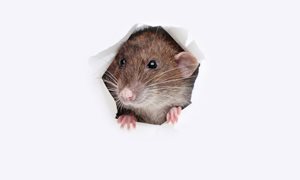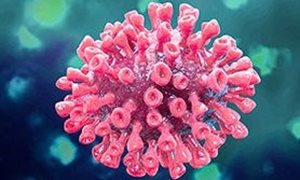11 March 2020
Gout is characterised by severe interleukin (IL)-1-mediated joint inflammation induced by monosodium urate crystals. Since IL-37 is a pivotal anti-inflammatory cytokine suppressing the activity of IL-1, they conducted genetic and functional studies aimed at elucidating the role of IL-37 in the pathogenesis and treatment of gout.
Viola and her colleagues identified four rare variants in IL37 in six of the discovery gout patients; p.(A144P), p.(G174Dfs*16), p.(C181*) and p.(N182S), whereas none emerged in healthy controls (Fisher’s exact p-value=0.043). All variants clustered in the functional domain of IL-37 in exon 5 (p-value=5.71×10−5). Predictive modelling and functional studies confirmed loss of anti-inflammatory functions and they substantiated the therapeutic potential of recombinant IL-37 in the treatment of gouty inflammation. Furthermore, the carrier status of p.(N182S)(rs752113534) was associated with increased risk (OR=1.81, p-value=0.031) of developing gout in hyperuricaemic individuals of Polynesian ancestry.

Gout is characterised by severe interleukin (IL)-1-mediated joint inflammation induced by monosodium urate crystals. Since IL-37 is a pivotal anti-inflammatory cytokine suppressing the activity of IL-1, they conducted genetic and functional studies aimed at elucidating the role of IL-37 in the pathogenesis and treatment of gout.
Viola and her colleagues identified four rare variants in IL37 in six of the discovery gout patients; p.(A144P), p.(G174Dfs*16), p.(C181*) and p.(N182S), whereas none emerged in healthy controls (Fisher’s exact p-value=0.043). All variants clustered in the functional domain of IL-37 in exon 5 (p-value=5.71×10−5). Predictive modelling and functional studies confirmed loss of anti-inflammatory functions and they substantiated the therapeutic potential of recombinant IL-37 in the treatment of gouty inflammation. Furthermore, the carrier status of p.(N182S)(rs752113534) was associated with increased risk (OR=1.81, p-value=0.031) of developing gout in hyperuricaemic individuals of Polynesian ancestry.
With this method they provide genetic as well as mechanistic evidence for the role of IL-37 in the pathogenesis of gout, and highlight the therapeutic potential of recombinant IL-37 for the treatment of gouty arthritis.
Related news items

Epigenetics: Immunization is passed on to offspring Mice transmit adaptations to infections to next generations
19 October 2021 Does an infection affect the immunization of subsequent generations? It does, according to research now published in Nature Immunology. go to page
Trained immunity: a tool for reducing susceptibility to and the severity of SARS-CoV-2 infection
17 February 2021 In a review in Cell Mihai Netea, Frank van de Veerdonk, Reinout van Crevel and Jorge Dominguez Andres propose that induction of trained immunity by whole-microorganism vaccines may represent an important tool for reducing susceptibility to and severity of SARS-CoV-2. go to page
Invasive fungal infections in influenza and COVID-19
8 July 2020 The Aspergillus fungus is found in the lungs of many COVID patients. A parallel occurs with influenza patients, who often develop a serious fungal infection. Although such a serious fungal infection seems to occur less frequently in COVID-patients, alertness remains necessary, go to page
Exome sequencing in routine diagnostics: a generic test for 254 patients with primary immunodeficiencies
18 June 2019 Exome sequencing may provide a genetic diagnosis in a significant number of patients in a single genetic test. Alexander Hoischen and Mihai Netea, theme Infectious diseases and global health, and colleagues, published their results in Genome Medicine. go to page
Alexander Hoischen appointed as associate professor
28 May 2019 Alexander Hoischen, affiliated with the department of Human Genetics and the department of Internal Medicine, has been appointed as associate professor ‘Genomic technologies & immuno-genomics’. go to page
